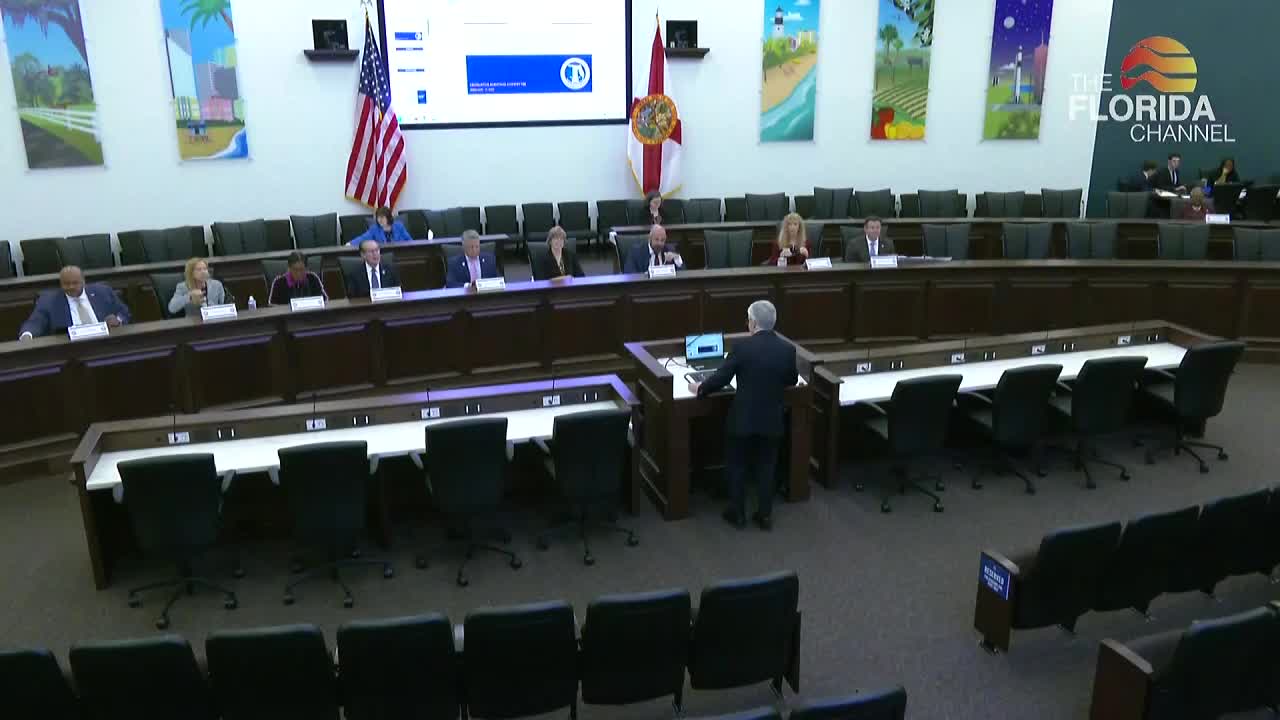State audit review finds repeated weaknesses, flags special districts for possible financial emergency
Get AI-powered insights, summaries, and transcripts
Subscribe
Summary
The Auditor General’s office reported to the Joint Legislative Auditing Committee that reviews of local government audits for the 2022–23 fiscal year found repeated internal-control weaknesses, budgetary noncompliance and a set of special districts meeting statutory indicators of potential financial emergency.
The Auditor General’s office reported to the Joint Legislative Auditing Committee that reviews of local government audits for the 2022–23 fiscal year found repeated internal-control weaknesses, budgetary noncompliance and a set of special districts meeting statutory indicators of potential financial emergency.
Derek Noonan, an audit manager with the Auditor General’s office, told the committee the office reviewed 1,603 audit reports covering 1,874 entities and identified 585 audit findings, including 164 material weaknesses, 117 significant deficiencies and 46 findings of legal noncompliance. "Pursuant to 11 45.7 Florida Statutes we prepared a summary of significant findings and financial trends identified in local government audit reports," Noonan said.
Why it matters: the committee and the Executive Office of the Governor are notified when an audited entity meets 1 or more conditions under state law that could indicate a financial emergency — for example, failure to make debt-service payments, failure to pay employees or payroll taxes, or failure to pay uncontested vendor claims. Noonan said most flagged entities are special districts, particularly community development districts that have missed debt-service payments.
The audits showed common problem areas across counties, municipalities and special districts: separation-of-duties weaknesses (frequently in payroll and vendor payments), inadequate budgetary controls and noncompliance with legal requirements on adopting or amending budgets, insufficient accounting records and reconciliations, debt-administration lapses (including missed debt-service or reserve requirements), untimely or missing bank reconciliations, and deficient capital-asset records such as missing inventories or failure to capitalize acquisitions.
Noonan said 17 reports contained modified audit opinions, including 10 municipalities with qualified opinions and several special districts with adverse or disclaimer opinions, and that repeat findings are common: about 178 of the 585 findings (roughly 30%) also appeared in prior-year reports. He also identified two entities with auditors’ going-concern statements: the Leon County Educational Facilities Authority and SWI Community Development District.
Committee members pressed the Auditor General’s office on the notification and follow-up process. Senator Davis asked when the state intervenes. Noonan described the statutory process under Section 218.503, Florida Statutes: when an entity meets one of the financial-emergency conditions the Auditor General notifies the committee and the Executive Office of the Governor, the Governor’s Office contacts the entity and the entity generally has 45 days to respond. If the entity requests assistance, the Governor’s Office may declare a financial emergency and provide or require technical assistance.
Lawmakers also discussed enforcement when local entities repeatedly fail to correct audit findings. Noonan said repeat offenders are referred to the committee as action items after three years of uncorrected findings; the Legislature can direct agencies such as the Department of Financial Services and the Department of Revenue to pursue remedies — including potential withholding of shared revenues — and for special districts the Department of Commerce can pursue dissolution or court action in severe cases.
Separately, committee staff presented a list of local governments that submitted audit reports missing required information. The committee accepted staff’s recommendation to take action against the single remaining entity that had not provided required materials: the Town of Micanopy. The motion to accept staff recommendation was adopted by voice vote; no roll-call tally was recorded in the transcript.
The Auditor General highlighted broader financial trends: while the number of entities meeting one or more financial-emergency indicators has trended downward over the last five years, auditors reported deteriorating financial conditions for 31 entities in 2022–23 (9 municipalities and 22 special districts). Noonan also noted a small uptick in long-term debt reported for governmental activities to about $29.3 billion for the 2022–23 fiscal year, an increase Noonan said may partially reflect changes in accounting standards.
The committee and audit staff discussed workforce and capacity issues with local audits: Noonan and members noted a nationwide shortage of qualified accountants and auditors that can delay audits and extend the time entities remain in potential financial stress. Lawmakers suggested statutory or procedural changes to speed notifications and improve compliance, and asked staff for recommendations on tools or statutory changes that could increase enforcement or efficiency.
The committee moved on after the vote; staff said they will continue follow-up with the Town of Micanopy and pursue the remaining missing-audit information per the committee’s direction.
